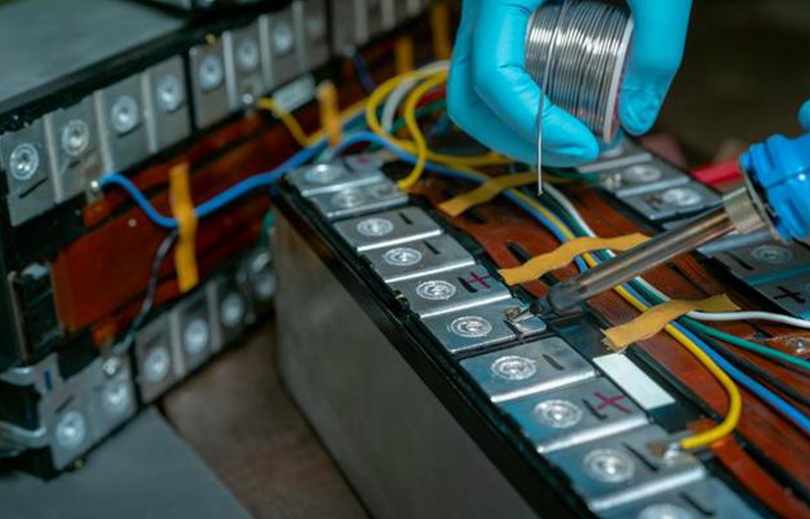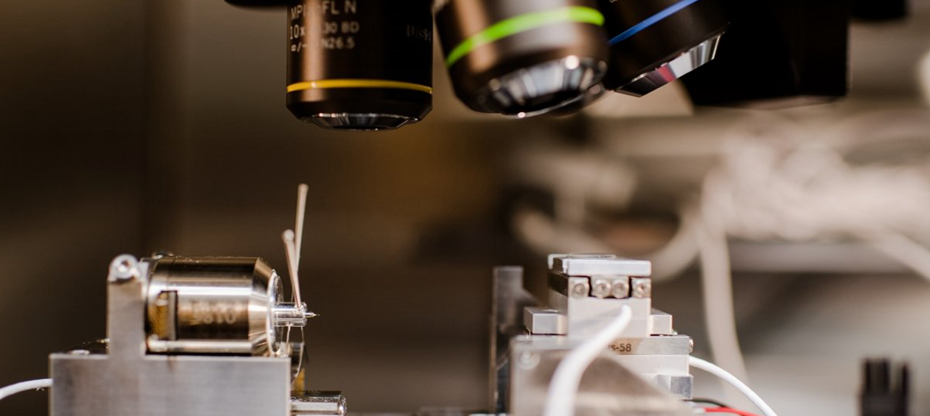Enhancing Grid Efficiency with Lithium Battery Technology: The Rise of Smart Grids
Ներածություն:
The energy landscape is rapidly evolving, with the demand for electricity constantly increasing. In recent years, there has been a strong push towards the development of smart grids, which utilize advanced technologies to optimize the generation, distribution, and consumption of electricity. Among the key technologies that are revolutionizing smart grids is lithium battery technology. This article explores the significance of lithium batteries in enhancing grid efficiency and the rise of smart grids.
1. The Need for Grid Efficiency:
As the demand for electricity continues to grow, it is crucial to ensure that the power grid operates efficiently. Traditional grids face challenges such as power outages, voltage fluctuations, and transmission losses. These issues not only inconvenience consumers but also result in significant economic losses. Grid efficiency is essential to meet the increasing demand for electricity while minimizing environmental impact and maximizing reliability.
2. Lithium Battery Technology:
Lithium battery technology has gained significant attention in recent years due to its high energy density, longer lifespan, and quick charging capabilities. These characteristics make lithium batteries an ideal choice for storing and releasing electrical energy efficiently. Compared to traditional lead-acid batteries, lithium batteries offer better performance, faster response times, and higher energy efficiency.
3. Role of Lithium Batteries in Smart Grids:
a) Energy Storage: Lithium batteries can store excess energy generated during off-peak hours and release it during peak demand periods. This helps balance the supply and demand of electricity, reducing strain on the grid and ensuring a stable power supply.
b) Renewable Integration: As renewable energy sources like solar and wind become more prevalent, lithium batteries can store the intermittent energy generated and smooth out the fluctuations. This enables a seamless integration of renewable energy into the grid, reducing reliance on fossil fuels and promoting sustainability.
c) Grid Stabilization: Lithium batteries, with their ability to respond quickly to fluctuations in demand and supply, play a crucial role in stabilizing the grid. They provide backup power during outages and help regulate the voltage and frequency of the grid, ensuring a reliable electricity supply.
4. Benefits of Smart Grids:
a) Grid Resilience: Smart grids equipped with lithium battery technology are more resilient to power disruptions. By leveraging energy storage and efficient distribution, smart grids can quickly identify and isolate faults, minimizing the impact on consumers.
b) Cost Savings: Smart grids optimize the distribution of electricity, reducing transmission losses and improving overall efficiency. This results in cost savings for both utilities and consumers, as well as a more affordable and reliable power supply.
c) Demand Response: Smart grids enable real-time monitoring of electricity consumption, allowing for demand response programs. Consumers can adjust their usage based on price signals, reducing peak demand and lowering electricity bills. Lithium batteries play a vital role in facilitating this demand response by storing excess energy during low-demand periods and releasing it during high-demand periods.
d) Environmental Sustainability: The integration of renewable energy sources made possible by smart grids and lithium batteries contributes to a greener and more sustainable energy sector. By reducing reliance on fossil fuels and optimizing energy usage, smart grids help mitigate the environmental impact of electricity generation.

Եզրակացություն:
Lithium battery technology is revolutionizing the energy sector by enhancing grid efficiency and facilitating the rise of smart grids. With their high energy density, improved performance, and quick response times, lithium batteries play a crucial role in energy storage, renewable integration, and grid stabilization. Smart grids equipped with lithium batteries offer numerous benefits such as grid resilience, cost savings, demand response, and environmental sustainability. As we move towards a more sustainable and efficient energy future, the utilization of lithium battery technology in smart grids will continue to play a vital role.
-
 When it comes to enjoying a day out on the water, having a reliable boat is crucial. One key component that ensures a smooth start-up is the cranking battery. This essential part provides the necessary power to start the boat's engine and get you sailing in no time. In this article, we will explore the importance of a cranking battery...Կարդալ ավելին
When it comes to enjoying a day out on the water, having a reliable boat is crucial. One key component that ensures a smooth start-up is the cranking battery. This essential part provides the necessary power to start the boat's engine and get you sailing in no time. In this article, we will explore the importance of a cranking battery...Կարդալ ավելին -
 If you are looking for a reliable and high-performance power solution for your off-grid or backup power needs, look no further than the 12V 100Ah LiFePO4 Lithium Iron Phosphate Battery. This battery is designed to provide you with a long-lasting and efficient power source that can keep you going for hours on end. The LiFePO4 lithium iron phosphate battery...Կարդալ ավելին
If you are looking for a reliable and high-performance power solution for your off-grid or backup power needs, look no further than the 12V 100Ah LiFePO4 Lithium Iron Phosphate Battery. This battery is designed to provide you with a long-lasting and efficient power source that can keep you going for hours on end. The LiFePO4 lithium iron phosphate battery...Կարդալ ավելին -
 Lithium-titanate (LTO) batteries are renowned for their exceptional rapid charge-discharge capabilities, making them a preferred choice in applications that demand quick and frequent cycles. Here are some key features and advantages of lithium-titanate batteries in the context of rapid charge-discharge cycles: Fast Charging: Lithium-titanate batteries are known for their ability to charge rapidly. Unlike traditional lithium-ion batteries, LTO batteries...Կարդալ ավելին
Lithium-titanate (LTO) batteries are renowned for their exceptional rapid charge-discharge capabilities, making them a preferred choice in applications that demand quick and frequent cycles. Here are some key features and advantages of lithium-titanate batteries in the context of rapid charge-discharge cycles: Fast Charging: Lithium-titanate batteries are known for their ability to charge rapidly. Unlike traditional lithium-ion batteries, LTO batteries...Կարդալ ավելին -
 Electricity has become a significant part of our daily lives, powering almost everything we use. With the increase in the use of electric vehicles and solar energy, batteries have become essential for storing electrical energy. The 48V battery is one of the most popular batteries used in electric vehicles, solar systems, and other applications that require high power output. One...Կարդալ ավելին
Electricity has become a significant part of our daily lives, powering almost everything we use. With the increase in the use of electric vehicles and solar energy, batteries have become essential for storing electrical energy. The 48V battery is one of the most popular batteries used in electric vehicles, solar systems, and other applications that require high power output. One...Կարդալ ավելին -
 As a car owner, it is important to know the basics of taking care of your car. One of the most crucial components of a car is the battery. The battery provides power to the engine, starter, and other electrical systems of the car. However, like any other car part, the battery can also wear out over time and may...Կարդալ ավելին
As a car owner, it is important to know the basics of taking care of your car. One of the most crucial components of a car is the battery. The battery provides power to the engine, starter, and other electrical systems of the car. However, like any other car part, the battery can also wear out over time and may...Կարդալ ավելին -
 The 48V LiFePO4 battery is a type of rechargeable battery that has gained popularity due to its long-lasting performance and reliability. LiFePO4 stands for Lithium Iron Phosphate, which is the chemical composition of the battery's cathode material. This technology is becoming increasingly popular in various applications, including electric vehicles, solar energy storage, and backup power systems. In this article, we...Կարդալ ավելին
The 48V LiFePO4 battery is a type of rechargeable battery that has gained popularity due to its long-lasting performance and reliability. LiFePO4 stands for Lithium Iron Phosphate, which is the chemical composition of the battery's cathode material. This technology is becoming increasingly popular in various applications, including electric vehicles, solar energy storage, and backup power systems. In this article, we...Կարդալ ավելին -
 The forklift industry has been making significant strides in recent years, thanks to the advent of electric forklifts powered by lithium batteries. This innovation has revolutionized the way materials are handled, offering numerous benefits over traditional fuel-powered forklifts. In this article, we will explore the advantages of electric forklifts with lithium batteries and their impact on the industry. First...Կարդալ ավելին
The forklift industry has been making significant strides in recent years, thanks to the advent of electric forklifts powered by lithium batteries. This innovation has revolutionized the way materials are handled, offering numerous benefits over traditional fuel-powered forklifts. In this article, we will explore the advantages of electric forklifts with lithium batteries and their impact on the industry. First...Կարդալ ավելին

